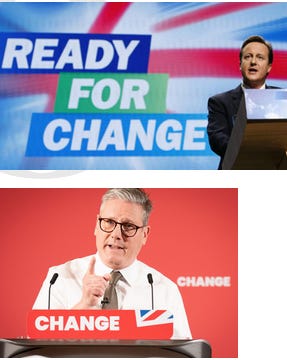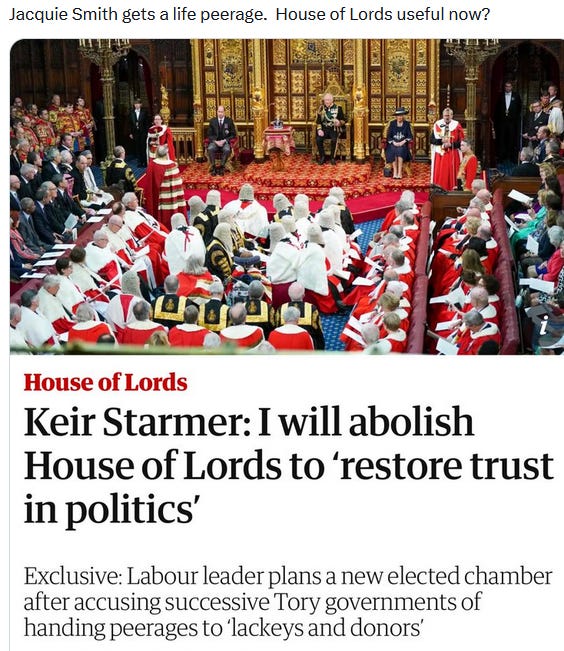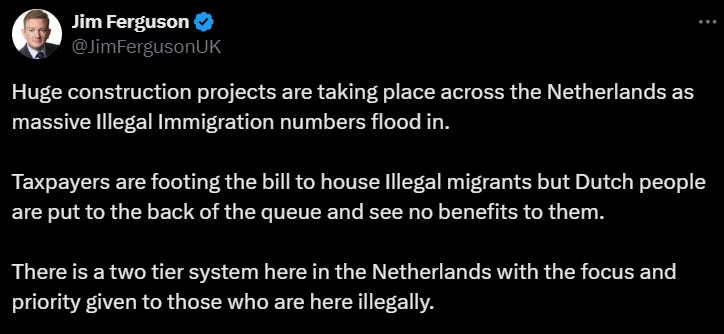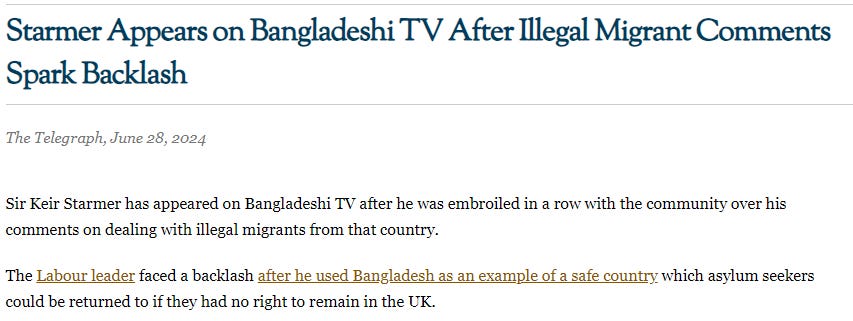Can we stop the cross-party lurch towards Armageddon?
I love Quentin Letts’ cheeky wit but in
describing last week’s PMQs as ‘a bore’ he missed
this explosive moment from Rishi Sunak:
‘I know at first hand how important it is that our Prime Minister can use his prerogative power to respond quickly militarily to protect British national security, sometimes without giving this House prior notice. These are perhaps the most difficult decisions that a Prime Minister can take, and I welcomed his support when I made them. I want to take this opportunity to assure him of the Opposition’s support if he deems it necessary to take similar action in the future.’
Done in plain sight: the Opposition handing carte blanche to the Government to declare war. Not that the royal prerogative needs it, and that is another issue.
In the first instance we assume this refers to Ukraine/Russia, though other countries are also swimming into view. In their exchange, both Sunak and the PM approvingly said, reporting from Starmer’s attendance at the NATO summit two days earlier, that Ukraine was on an ‘irreversible path to [NATO] membership.’ Given Russia’s red lines, the implications are umistakable.
In my view, the direction of travel is insane.
Also, what happened to our adversarial Parliament, a system designed to thrash out the truth and restrain acts of folly by the Executive? We have seen with the Covid fiasco how multi-party consensus has its dangers; how much more so, with the prospect of atomic Mutually Assured Destruction.
If only the fiery left-wing orator George Galloway had been re-elected to Parliament, so that he could raise his dissenting voice. Instead he is reduced to using YouTube to
interview former weapons inspector Scott Ritter on the risk of nuclear conflict. UK Army head General Sir Roly Walker has
told the RUSI Land War Conference that our armed forces are under-resourced and we need to double them by 2027. Ritter says the crisis may come sooner, for the
latest START Treaty, limiting the use of strategic nuclear weapons, is due to run out on February 4, 2026. After this, both sides may rush to reinstall intermediate range nuclear missiles close to Ukraine’s border with Russia.
Ritter thinks NATO stupidly believes it can continue to push on and call Russia’s bluff, but because of technological development the time for leaders to make rational decisions in an emergency has shortened. Russia might have as little as six minutes to follow protocols and decide whether to respond with atomic weapons; and there is, he says, no such thing as a limited nuclear war.
The Bulletin of the Atomic Scientists has now set its ‘
Doomsday Clock’, an indicator of their assessment of potential global disaster from various threats, to ‘90 seconds to midnight—the closest to global catastrophe it has ever been—in large part because of Russian threats to use nuclear weapons in the war in Ukraine.’
Would a Trump victory in the coming Presidential election ease back the hands on the clock?
Not according to Ritter, on his Substack site:
Donald Trump, meanwhile, has proffered rhetoric which has led many to believe he would end the conflict in Ukraine, and thereby open the door for better relations with Russia. But this policy is predicated on the concept of the “perfect phone call” between Trump and Russian President Vladimir Putin where the Russian leader accedes to American-dictated terms regarding Ukraine which would fall far short of Russia’s stated goals. Trump has made it clear that if Putin fails to bend the knee on Ukraine, he will then flood Ukraine with weapons.
Ritter is proposing a mass US voter movement telling Dems and the GOP that their November ballots will go to whichever side pledges a commitment to peace and the prevention of nuclear war. Surely we in the UK, too, should urge our MPs to turn back from impending disaster.
We must also hope that Sunak’s replacement as Party Leader will offer a modified position on Ukraine. As Churchill said in 1954, ‘Meeting jaw to jaw is better than war.’




